Twitter Feed
NCOIC Discusses e-Discovery and Cloud Computing
Last week during its weekly meeting, the NCOIC Cloud Computing Working Group (CCWG) examined some of the legal aspects surrounding electronically stored information. With government use of cloud computing expected…
Take the survey, get a book!
“Cloud Musings”, in cooperation with Aditya Yadav & Associates, is conducting a new cloud computing survey. This short, eight (8) question poll, is designed to gauge general corporate plans around…
Army Knowledge Leaders Study Cloud Computing
This week it was my pleasure to explore cloud computing with Army Knowledge Leaders (AKL) ! AKL is an intensive 2 year experience of training and work rotations designed to develop leadership,…
Northrop Grumman & Lockheed Martin Selected for CANES
Last week the US Navy awarded initial CANES contracts to Northrop Grumman and Lockheed Martin. Navy officials place the contract values at $775M for Northrop and $937M for Lockheed.…
NCOIC Analyses Cloud Computing With SCOPE
Last week, the Network Centric Operations Consortium (NCOIC) Cloud Computing Working Group (CCWG) started it’s work on cloud interoperability in earnest. The first step in their process is the completion…
TASER Awarded: The NGA ASP/ISP Transition Contract
The National Geospatial-Intelligence Agency (NGA) has awarded the Total Application Services for Enterprise Requirements (TASER) contract to: Accenture National Security Services, LLC BAE Systems Information Technology, Inc. The Boeing Company-Autometric,…
EuroCloud Expands Quickly
Last October I introduced EuroCloud as a pan-European business network with the goal of promoting European use of cloud computing. In the intervening three months, the organization has grown to…
Joining NJVC: A Professional Plateau
This week I begin a new and exciting phase of my professional career by joining the NJVC Enterprise Management Team! For those unfamiliar, NJVC is one of the largest information…
DoD Deputy CIO on Secure Information Sharing
Today on Federal Executive Forum, Dave Wennergren, Deputy CIO, Office of the Secretary of Defense, shared his views on secure information sharing. Mr. David M. Wennergren serves as the Deputy…
Training Conference: Cloud Computing for DoD & Government
Please join me at the Cloud Computing for DoD & Government training conference, February 22-24, 2010 at the Hilton Old Town in Alexandria, VA. This unique conference agenda blends interactive…

Edge computing provides compute, storage, and networking resources close to devices generating traffic. Its benefits are based on an ability to provide new services capable of meeting stringent operational requirements by minimizing both data latency and the need for bandwidth. Based on Google trend data, searches for the term has also grown substantially over the past five years.
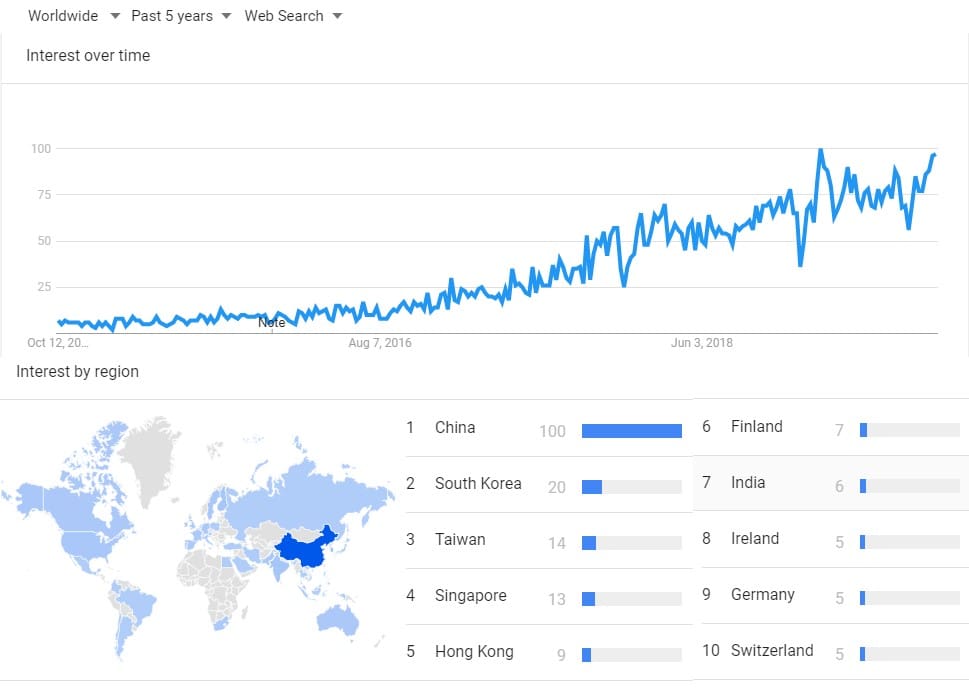
Recognizing that web searches are not (yet) the arbiter of all things real, it does indicate a rapid growth of interest in the term. Observations of the information technology industry show a similar trend among application developers, particularly those working in manufacturing, gaming, AR/VR, and automotive. Their work seems focused on the exploration of quite a few significant business opportunities arising from the introduction of edge computing and 5G. Communication service providers are also mimicking the interest by evolving their centralized NFV infrastructure to distributed cloud infrastructure to build out edge clouds handling telecom applications and third-party applications.
While all this activity does support the potential of edge computing and 5G, essential questions remain regarding the potential versus the reality of edge computing. This query was the focus of an Ericsson Digital webinar presentation by João Monteiro Soares, Strategic Solution Manager, Distributed Cloud Ericsson and Alan Evans, Senior Director of Innovation Strategy at Edge Gravity.
These two industry experts focused on four key areas:
- The value of edge computing to 5G networks;
- Service provider business growth;
- Industry early adopter use cases; and
- Profitable service provider business strategies.
Ericsson projects that this segment will draw 25% of a US$14B-US$129B 5G revenue opportunity anchors their edge computing profitability argument.
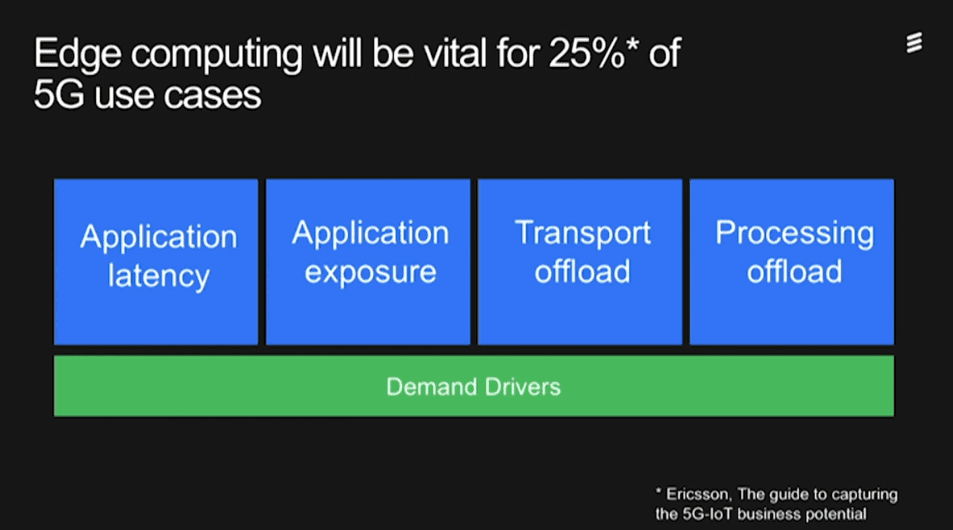
Realized numbers depend on specific industry solutions and the rate of user adoption. They argued that telecommunications providers are key players in getting the solutions in place through the investment decisions they make today on testing and validation of relevant technologies, concrete business cases, and business model feasibility. Experiments should be executed to determine the:
- architectural positioning of industry dependent workloads;
- extendibility of centralized national architectures to regional and local access sites;
- deployment of NFVI centralized clouds throughout the network and to the edge;
- pros and cons of centralized services from a distributed cloud; and
- end-to-end service provider execution environment.
All of these functions require network transformation and a concerted collaboration effort around building broader, industry vertical ecosystems. All of these activities represent significant departures from the traditional telecommunications sales approach based on capital expenditure and acquisition of industry vertical appliances.
Early adopters of edge computing have discovered that the more lucrative path is towards the provisioning of industry vertical tailored on-demand services that are tempered by various maturing technologies and regulatory environments. This future state supports the operational expenditure of funds by telco customers for the consumption of virtual resources. From an infrastructure perspective, the goal should be establishing a virtualized mobile core in a true cloud-native manner. Customization, network slicing, and infrastructure platform services will all combine to enable service providers to deliver solutions across all multiple verticals, leading ones of which include:
- Gaming and entertainment;
- AR/VR Mixed Reality;
- Critical IoT;
- Smart Manufacturing; and
- Smart Automotive
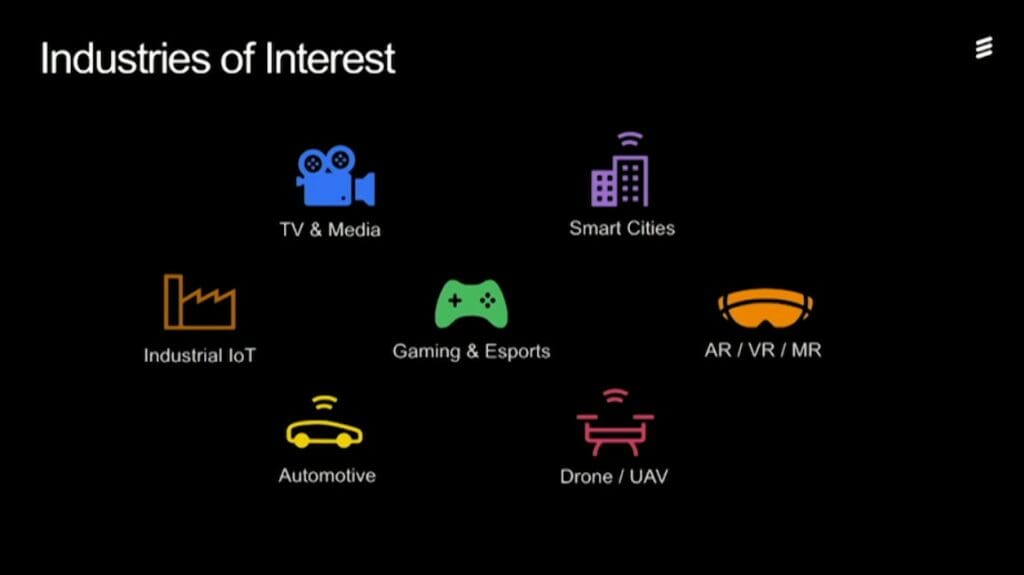
To monetize future business models, service providers need to innovate towards the delivery of new services. This journey argues for a platform that is also open to innovation by third parties on top of the foundational network. Service aggregation and revenue sharing are also critical components of these new business models. Telco service provider strategies should encompass both a global industry ecosystem positional view and a local service focus on enhanced regional bandwidth and latency reduction. Technology development remains essential, but it needs to take a back seat to strategic business development activities. This challenging path requires real cultural change that counters the historic technology focus and embraces industry vertical competence and values extended vertical industry ecosystems.
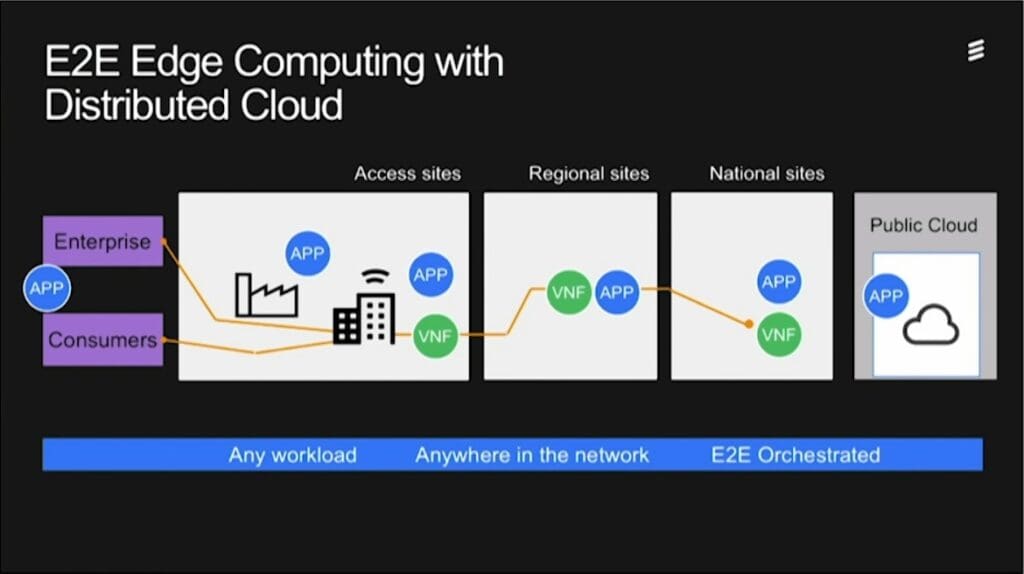
Seventy to eighty percent of the required technology seems to be in place. The remaining technological requirements are determined through industry vertical use case testing across live 5G network environment. I came away from the webinar fully convinced that edge computing is indeed a real opportunity. Revenue and profit realization, however, requires joint development of industry-focused ecosystems by business application developers and telecommunications providers. They must establish joint strategies and specific use case roadmaps today or risk being left behind by their competition. The upcoming SDN World Congress promises to be a crucible for the development and testing of profitable edge computing business models. I can’t wait to find out more about how the most innovative service providers use Ericsson solutions to establish their leadership in this brave new world.
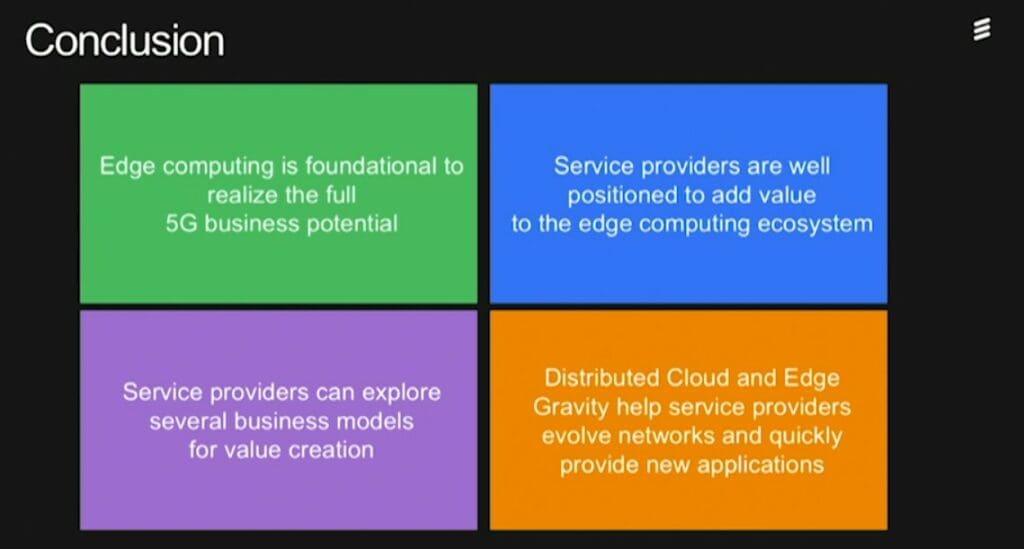
Cloud Computing
- CPUcoin Expands CPU/GPU Power Sharing with Cudo Ventures Enterprise Network Partnership
- CPUcoin Expands CPU/GPU Power Sharing with Cudo Ventures Enterprise Network Partnership
- Route1 Announces Q2 2019 Financial Results
- CPUcoin Expands CPU/GPU Power Sharing with Cudo Ventures Enterprise Network Partnership
- ChannelAdvisor to Present at the D.A. Davidson 18th Annual Technology Conference
Cybersecurity
- Route1 Announces Q2 2019 Financial Results
- FIRST US BANCSHARES, INC. DECLARES CASH DIVIDEND
- Business Continuity Management Planning Solution Market is Expected to Grow ~ US$ 1.6 Bn by the end of 2029 - PMR
- Atos delivers Quantum-Learning-as-a-Service to Xofia to enable artificial intelligence solutions
- New Ares IoT Botnet discovered on Android OS based Set-Top Boxes
